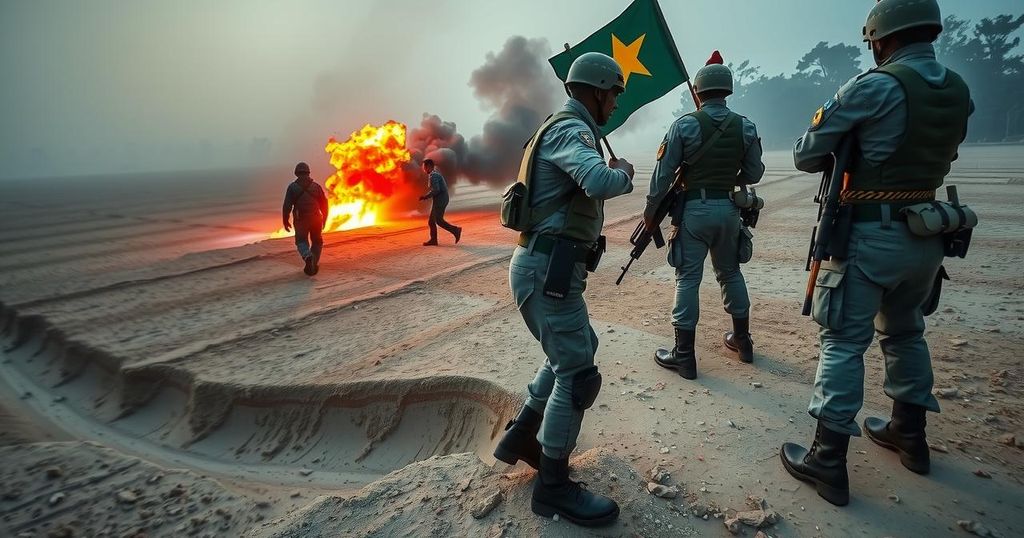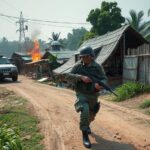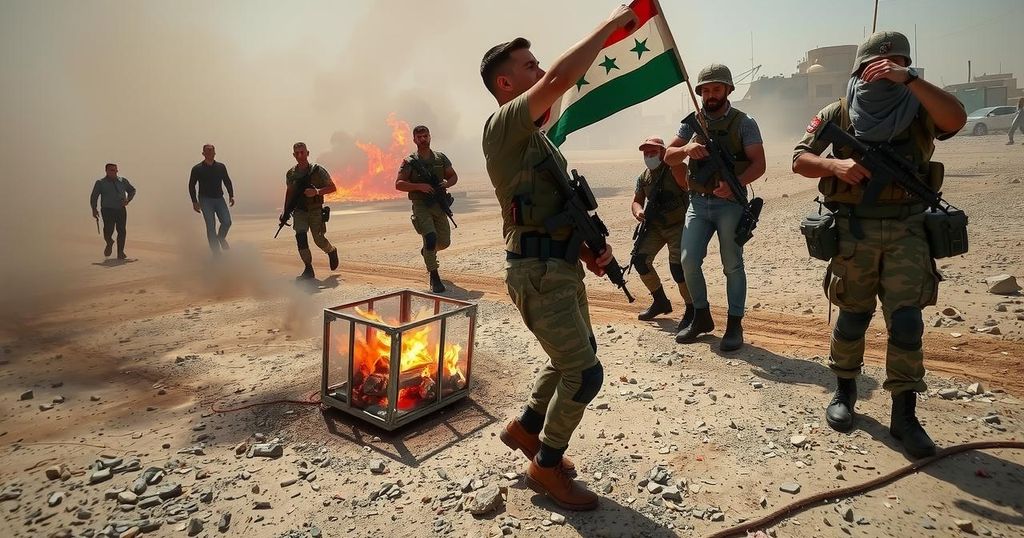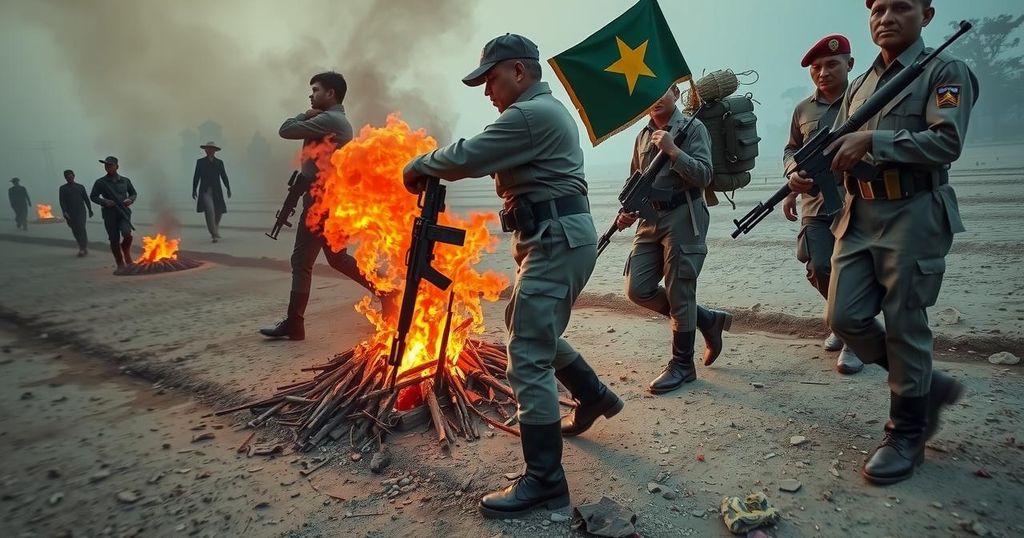Arakan Army Captures BGP5 Barracks: A Turning Point in Myanmar’s Civil Conflict
The Arakan Army’s siege of BGP5 barracks resulted in a significant defeat for the Myanmar military, marking the first complete loss of border control for the junta. With hundreds of soldiers reportedly killed, the capture signals a shifting balance of power in Myanmar’s civil conflict, while raising urgent humanitarian concerns for the Rohingya population.
The siege of the BGP5 barracks marked a significant defeat for the Myanmar military junta in northern Rakhine State. The ensuing battle, characterized by artillery fire and a determined assault by the Arakan Army (AA), resulted in the loss of hundreds of soldiers. As the AA successfully captured the compound, it became the first insurgent group to assert complete control over a state in Myanmar, while the military’s hold wavered. The compound itself was built on the site of a Rohingya village demolished during the 2017 violence that resulted in mass displacements. Following a prolonged siege that began in June, the junta forces were unable to sustain their position, leading to a demoralized surrender from the remaining soldiers.
The defeat represents not just a military failure for General Min Aung Hlaing but also a pivotal shift in the ongoing civil conflict, with the AA emerging as an increasingly organized and formidable opponent. They have capitalized on longstanding grievances within the Rakhine population, showcasing their capability to govern and administer the territory they control. However, this victory raises substantial concerns regarding the humanitarian crisis in the region, particularly the fate of the Rohingya population, who remain under threat and have faced expulsion from AA-controlled areas. As the AA attempts to establish governance, questions remain about the inclusion of all ethnic groups and their treatment moving forward, especially given the fragile dynamics in the region.
The conflict in Myanmar has escalated significantly since the military’s coup in 2021, leading to widespread civil unrest and fighting among various ethnic insurgent groups. The Arakan Army, which campaigns for self-governance for the Rakhine people, has gained strength and has positioned itself as a dominant force in the region after capturing the BGP5 barracks. The history of violence against the Rohingya population further complicates the narrative, as deep-rooted ethnic tensions influence the current political landscape.
The capture of BGP5 by the Arakan Army marks a considerable advancement in their campaign for autonomy and highlights the growing instability within the military junta’s control. While this victory demonstrates the effectiveness of the AA, it also poses serious humanitarian issues, particularly for the Rohingya community. Moreover, the evolving dynamics between ethnic groups and the future governance of Rakhine will be critical for establishing lasting peace in Myanmar.
Original Source: www.bbc.com








Post Comment